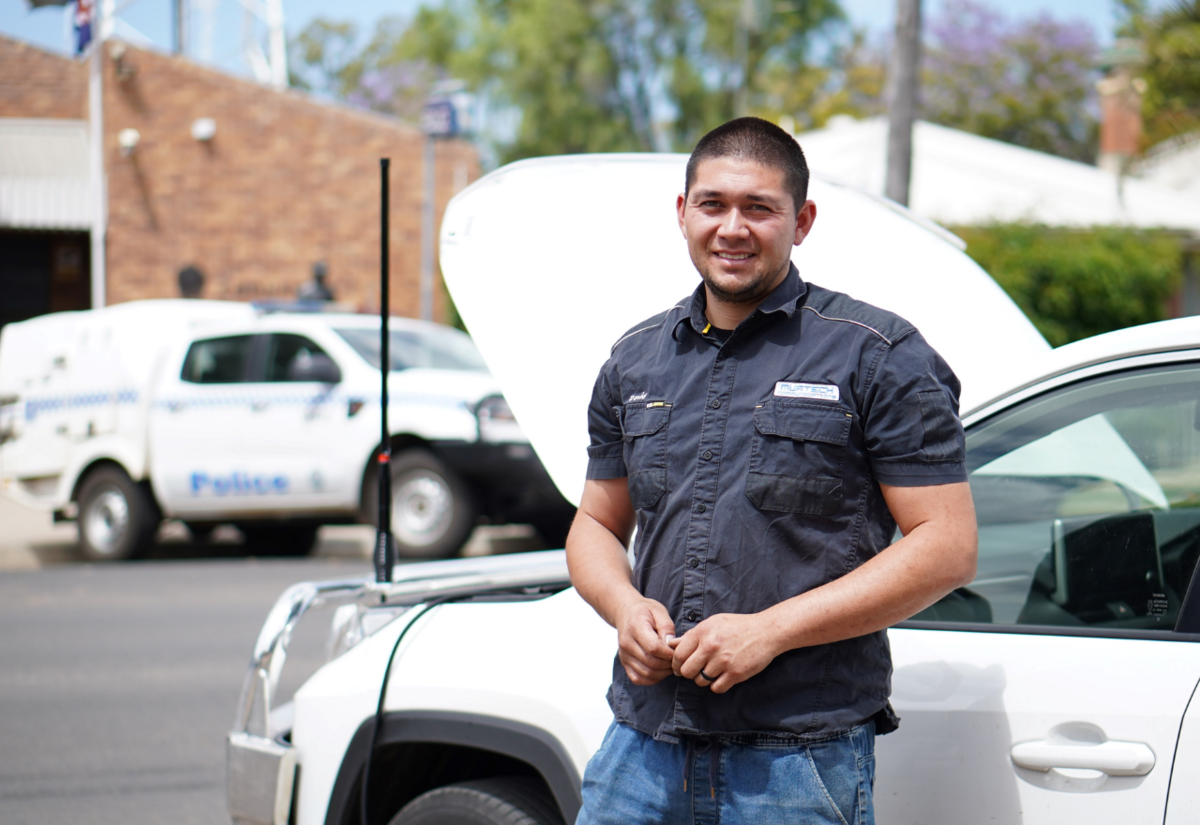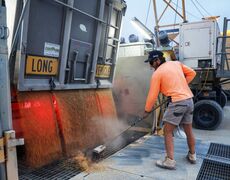3G shutdown: The west waits for what's next
River McCrossen
30 October 2024, 8:20 PM
 David Murray sells mobile boosters in Coonamble and says its a matter of wait and see.
David Murray sells mobile boosters in Coonamble and says its a matter of wait and see.The wait is on to see how 4G and 5G will perform after Telstra finally switched off its 3G network on Monday 28 October.
Murtech's David Murray previously operated a Telstra dealership and would serve customer around access to mobile networks.
Service providers have urged customers to upgrade equipment to be compatible with the newer networks, but he suspects there's likely to be more to the story.
Mr Murray said he doesn't yet recommend upgrading signal boosters from 4G to 5G over uncertainty around local network performance.
"We're not going to know how it's going to go until 3G is completely shut off and that 5G is rolled out onto that 3G frequency."
"We went from having a service where you could make a phone call on one bar and it wasn't bandwidth or data dependent, which is 3G, to 4G and 5G which require data to make a call, where you've got to have a more consistent signal.
"On 3G you'd be able to hold a conversation. Yes, it might be a bit choppy, whereas with 4G and 5G at the moment it's either on or it's off.
"It's not as consistent yet, mainly because of lack of data speed produced from the tower."
While he expects 5G to produce more stable voice calls, Mr Murray said it's unsure whether service improvement will be gradual or fall into place when the electromagnetic spectrum used by 3G is redirected to 5G.
Spectrum is a resource that carries wireless information between phones.
Telstra had extended its 3G shutdown date from 31 June this year to 31 August before pushing it back again to 28 October to allow more time for customers to prepare.
As well as mobile devices, the technology like EFFPOS machines, farm equipment, security cameras and fire and medical alarms have relied on the old network.
Former Coonamble IT specialist Alan Dodd manages internet services for around 25-30 business, and said he has only seen one company approach him about upgrading equipment.
"That was just about some tablets that a company that I look after use, and they're all 4G and 5G," Mr Dodd said.
"I just don't think people really are concerned.
"It's been quiet mundane, to be quite honest."
However, he said automated monitoring systems like rain gauges, which might receive less attention than mobile devices, could be a source of trouble.
As the closure took effect, NSW Farmers Rural Affairs Committee Chair Deb Charlton called on telecommunications providers to make sure no one was left disconnected or in danger following the shutdown.
“While we’re still yet to gauge the full impact of the shutdown on communities, our number one priority remains that we receive an upgrade, not a downgrade, in our connectivity here in the bush,” Mrs Charlton said.
“Telcos must ensure people can swap safely over to their 4G and 5G networks, without any disruption and without leaving anyone behind.”
Addressing blackspots and boosting connectivity across regional NSW must also remain a priority for telcos moving forward, Mrs Charlton said.
“Whether it’s a landline, a mobile phone, a water meter or a tractor using telemetry technology, it’s vital the shutdown of Australia’s 3G network does not disrupt the function of important technologies and devices,” Mrs Charlton said.
“In 2024, we simply can’t afford not to be connected, and it’s critical our telcos do everything in their power to ensure this shutdown does not put anyone’s safety or connectivity at risk.”



